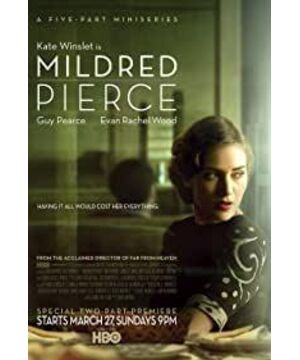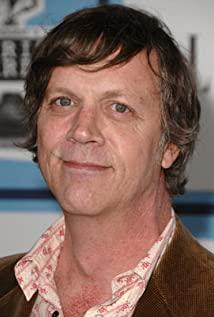by Su
Xiang In 1941, the tough guy novelist James M. Kane published a new book named after the heroine "Mudley Pierce". In 1945, the novel was adapted into a movie. Like many translated films introduced in the Republic of China, this film has an elegant title: "The Demon of Desire in the Sea". The new translation of the novel published this summer is called "A Floating Life".
The two translated names are in one table and one in the other, and Mu Deli's story has already been told. On the surface, we see that this middle-class abandoned woman had to put down her body as a waitress during the Great Depression, and became a wealthy businessman in the society. In the end, her career was destroyed and she returned to her family. ; And every time Mudley makes a choice in life, whether he succeeds or fails, the invisible baton is always the love that has no bottom line for her daughter Vida and is repeatedly trampled on by her daughter, which is a "love demon".
Vita lost to Mudley, and the story lost to us in
2011. The miniseries based on this novel swept the Emmy Awards. However, audiences who have never seen the original work simply have the idea of watching the annual drama of the Home Theater Channel (HBO). Like the heroine Mu Deli, 80% will be caught in a sense of dislocation and frustration that can't be escaped from the series.
This play highly conforms to the original work in the plot direction. The opening was in 1931, in Glendale, California. A man was mowing the lawn in front of the house and a woman was frosting the cake in the house. However, an oil painting-like illusion of stability in the world was shattered by a few words from a woman: It turned out that Mudley’s husband Bert was relaxing to mow the lawn because she had been doing nothing after bankruptcy; and she baked cakes to sell to neighbors for subsidies. Home. She broke the unbearable status quo in a few words, and drove Burt out of the house with an aggressive method and pushed him to his lover.
Time was difficult, and a single mother started raising two daughters by herself. This kind of start, women's inspirational themes are ready to come out. The subsequent plot trend was once centered on Mudley's bumpy job search, which reinforced this expectation. However, it is not difficult to find that self-improvement is not Mudley's theme, but the daughter is. The conflict between her and her two daughters, especially her eldest daughter, Vita, took up a lot of space, so this is actually a family ethics drama? After her newly-married husband Monty and Vita revealed their affair, Mudley grabbed Vita's neck in a rage. The straightforwardness of sex and violence also saw the background color of Kane's old tough-boy novels.
However, once you put yourself into Mudley's perspective, readers and mini-series audiences will feel uncomfortable in every way. Mudley, who once owned several restaurants, finally had nothing but Burt and the old house. Is the meaning of life a lifelong struggle and nothing? Mothers always give, compromise and tolerate, and daughters repeatedly deceive and deprive them. This is not a family, but a class society. Not to mention the tough guy style. She was angry with Vita for a little bit of violence, not only did not hurt, but gave the latter a chance to take advantage of her. It's bitter enough to see the plot, but the conclusions of "Let her go to hell" and "One drunk Fang Xiu" come to an abrupt end, disproportionate to the mental torment of the penultimate page of the novel with new content added. It can be said that whether it is set into inspirational themes, ethical dramas, tough guy works, or even bitter drama, the whole story has negative expectations of the audience for this type.
Such dissatisfaction is not unique to today. People at that time regarded James M. Kane as the backbone of the tough guy novels. The author of "The Postman Always Rings the Bell twice" and "Double Compensation", since he could write "I killed people for money and women , I didn’t get the money, and I didn’t get a woman. Why did the new work only write about two women who don’t kill people and only fight with each other? "What softened Mr. Kane?" asked by "National Weekly" must have been the voice of most readers at the time.
In the Great Depression and the war, women's self-consciousness awakened in
a dark rainy night. A few gunshots banged, the man fell to the ground, a gun fell beside him, and he lightly called a name: "Mudley" before he died. The camera scanned the room, revealing traces of bullets on the mirror. Outside the house, a woman who couldn't see her appearance drove away. In the next scene, a lady with heavy walking and tearful eyes stands on a bridge by the sea and wants to jump off. She is Mudley. She was the one who shot the shot at the beginning? What kind of grudge does she have with that man?
The suspenseful murder plot, the heavy soundtrack and the way the spectacle uses light all tell the audience: this is a noir film. Some commentators said half-jokingly that Michael Curtis’s "The Demon of Desire in the Sea" set a murderous wedge, and made a family ethics film among the classic film noirs. It is unfair to say that, the changes to the movie almost changed the bones.
How could the money scammed by the fake pregnancy allow Vita to succeed, the cheque supporting Vita's independent life in the book was torn to pieces by her mother. How could the daughter who used her mother's hard-earned money to pave the way to find the entrance to the palace of elegant art, leaving her mother's shelter, she could only be reduced to singing a small tune in a tavern. How could Monti, a nobleman, be serious with Vita, and could go far and high together? He could only act on her occasionally and was shot and killed by the unwilling Vita.
It was also Mudley who lost Monty and Vita, and the movie no longer failed the audience's expectations. In this regard, Kane did not buy it, "How can I make a murder story? Isn't such a B-level film been filmed for forty years? Why not shoot it according to the original book, at least it is a good story." Movie Streamer Yi Cai is by no means a second-rate work, but it deviates from the author's intention.
In the golden age of Hollywood, film noir was one of the few types that was not restricted by a happy ending. But the "law of love" and the plot setting principle of "the one who gains the way helps more and the one who loses the way is few help" should not be challenged. Therefore, Vita cannot succeed and cannot be loved, so Phyllis, who murdered her husband in "Double Compensation", gets away with justice in the book, and has to die under the gun of her complicity in the movie. Movies are always more "moral" than books.
Of course, the destruction of the old economy and class order by the Great Depression, and women's efforts to seek economic autonomy in this process are the backgrounds shared by novels and movies. In the era of filming, wars required women to go out to work, and women’s self-awareness was even more advanced. Mudley was much harder than in the book. Her assistant Ada was more masculine, and there was no need for men or families around him. It is simply a "female man".
Why do you vote for Qiong Yao and repay him for poison?
Miniseries is a category of TV dramas that can carry grand and profound themes. More than sixty years later, HBO's drama has removed the shackles of morality and tried to restore the complexity of the novel. For example, Mudley and Ida are not hard-core sisters in the movie who are loyal to each other at first sight. At first, as a new hostess, Mudley wants to sell homemade pies to the boss and needs to please the foreman Ida. Ada eventually betrayed Mudley and took over her company.
Then, following the same step with the original work, it is necessary to use images to answer the most difficult question in the original work: Why does the mother insist on repaying her for her poison? In the past, the most controversial part of this novel was the formation of Mudeli after Vita returned to fame. At that time, after she was already a small accomplished soprano soprano, her mother did everything for her to help her get to the next level, but she was merciless with a backhand blow. Is her behavioral logic just pure evil?
For today's readers, in the series of disappointing and suffocating "unsolved mysteries" in "A Floating World", this one and "how to be ashamed of being a waitress" will not fall out of the top three. This is actually a problem. Mudley's love for Vita, in addition to her mother's nature, is to a large extent chasing after the aristocracy that Vita is possible, but she certainly can't match it. In the mediocre middle-class life of Glendale, Mudley looked carefully at Pasadena, where Monty's house was located. In the logic of the superior, the waitresses who use the service of providing food to get money and the prostitutes who provide sex are the same thing. They can be vulgar, but they are not worthy of respect. How much Mudley agrees with the distinctions of class, how much her daughter despises her.
Many places in the novel juxtapose food and sex. Vita, who was less than fifteen years old, relayed Monty’s description of Mudley: "The most beautiful legs are seen in the kitchen, not in the living room", "If you can get the maid, be sure to Don't provoke the hostess." The meaning is clear, no matter how successful Mudley's career is, no matter how he depends on her financially, in his eyes, she is always a low-level person who only involves carnal desires. And Vita sees it the same way. It is foreseeable that this will lead to a terrible mother-daughter relationship.
If you want to get to this topic, you have to work harder on the relevant details. Although Vita's harsh words to break the truth are still there, Monty is physically infatuated with Mudley and dissociates mentally, and excludes her from her own circle but allows Vita to integrate in. This dazzling comparison has not been achieved. The presentation of impact. After all, the image is a visual art, and it's not enough to just use your mouth. Without Chandler and Billy Wilder reborn, we can help him adapt the script again ("Double Compensation").
There are many such negligences. In the book, when Vita finally bids farewell to her remarried parents, her father who always dotes on her avoids her eyes. It is easy to add a lens, but in the TV series, it is just as warm and swallowed. The death of her youngest daughter Ruili is only the sorrow that is accustomed to family dramas. In the book, Mu Deli is fortunate that it is not Vida's horrible thoughts are gone. You know, the two daughters are both projections of Mudli, Ruili is Mudli's true nature, and Vida is her imagination. Ruili's death has heralded the final outcome.
The author of the novel tries hard to explain the truth about sex and food, money and class, self and others, the white and bloody truth that he understands. It is not serious and brave enough to treat it with the belief that "I'm making a family ethics drama". And how exquisite production, how exquisite acting skills can not be remedied.
View more about Mildred Pierce reviews











